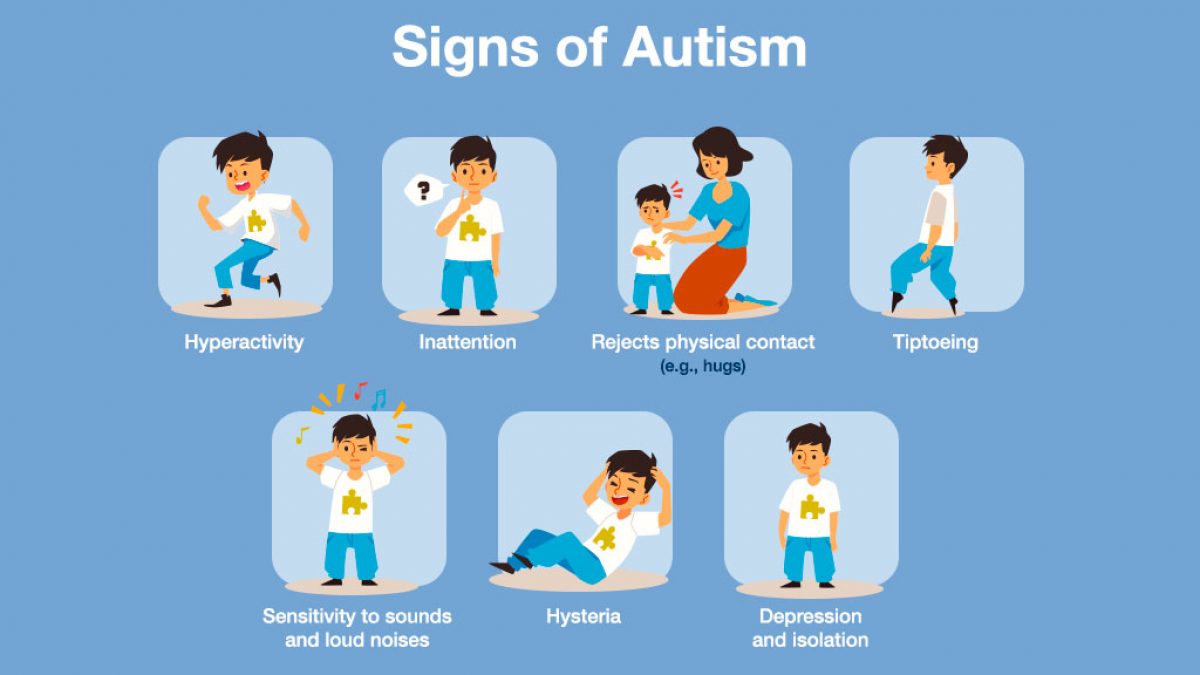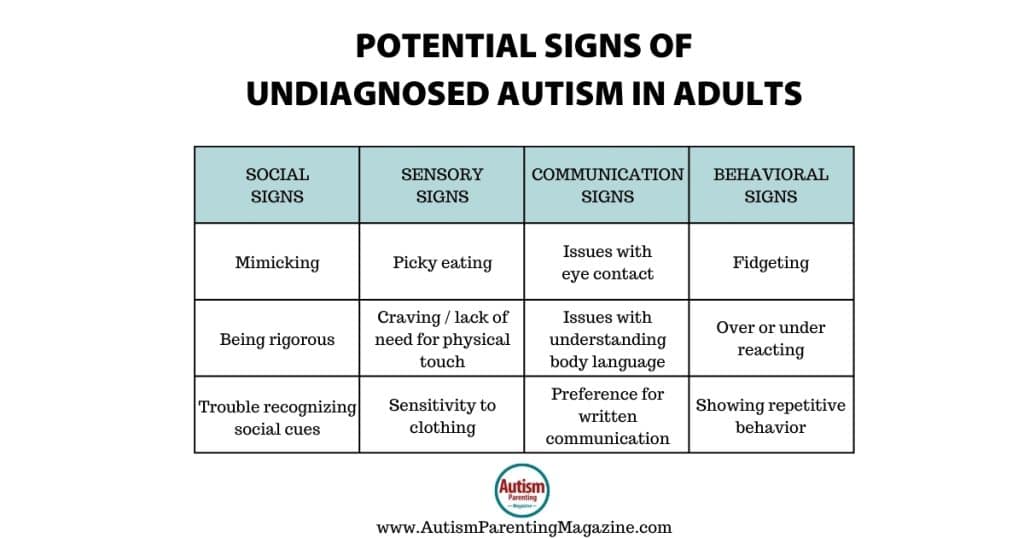Key Indications and Symptoms to Recognize in People With Behavior Autism
When you experience somebody with behavioral autism, identifying crucial indications and symptoms is important. In addition, sensory level of sensitivities can lead to overwhelming experiences.
Obstacles in Social Communications
When you communicate with someone on the autism spectrum, you could observe they struggle with social signs and interaction. These challenges can make social communications feel frustrating for them. You may see them staying clear of eye get in touch with or standing also close or as well away during discussions, which can create misconceptions. They may not select up on body movement or faces, making it harder for them to determine how others are feeling.
When they do involve, they could speak about their passions in terrific detail without seeing if you're interested. Comprehending these obstacles can help you come close to communications with empathy and perseverance, cultivating a more comfortable setting for both of you.
Difficulty With Verbal and Non-Verbal Communication

Non-verbal communication can be a lot more challenging. You might see an absence of eye get in touch with or restricted use of motions, which can make communications feel uncomfortable. Facial expressions might not constantly straighten with the discussion, causing confusion regarding their sensations. Recognizing these indicators is vital, as it aids you better assistance and engage with people on the autism range. By understanding their interaction difficulties, you can promote much more meaningful links and offer an extra supportive setting.
Repetitive Habits and Routines
Interaction difficulties commonly accompany other indications of autism, such as recurring actions and a strong preference for regimens. You may see that individuals with autism often take part in details, repetitive activities, like hand-flapping, shaking, or duplicating phrases. These behaviors can supply convenience and a feeling of control in a frequently frustrating globe.
Regimens are just as vital; several individuals flourish when they comply with an organized timetable. You may discover that modifications to these regimens can lead to considerable distress. For instance, if they have an everyday ritual of consuming morning meal at a specific time or following a certain course to college, any type of interruption can trigger anxiety.
Identifying these patterns assists you comprehend their behavior and give assistance. By fitting their need for regular and permitting repeated actions, you can create a much more comfortable setting that alleviates their difficulties.
Sensory Sensitivities

Common Sensory Triggers
Sensory sensitivities can substantially influence day-to-day live for people with autism, as certain stimulations often cause overwhelming responses. Usual sensory triggers consist of loud noises, intense lights, and strong scents. You might see that sudden audios, like alarm systems or alarms, create anxiety or distress. Similarly, fluorescent lights in shops can really feel unpleasant and harsh. Appearances can also play a significant duty; rough fabrics or certain food appearances may be excruciating for you. In addition, crowded areas can overwhelm your senses, making it hard to kick back or concentrate. Understanding these triggers can help you handle your atmosphere better. By knowing what impacts you, you can take actions to reduce pain and boost your everyday experiences.
Behavioral Responses Discussed
Understanding your behavior reactions to sensory sensitivities is crucial, as they usually reveal exactly how you interact with the globe. You may see that certain sounds, lights, or textures bewilder you, leading to stress and anxiety or discomfort. When confronted with these stimulations, you might take out, cover my explanation your ears, and even respond strongly. These reactions aren't just traits; they're your method of coping with overstimulation. You might also locate on your own seeking details sensory experiences, like deep pressure or quiet environments, to help ground on your own. Recognizing these patterns helps you understand your requirements far better and can lead how you connect them to others. By recognizing your sensory sensitivities, you can function towards developing a setting that feels a lot more manageable and comfy for you.
Coping Techniques Review
Recognizing your sensory sensitivities is simply the initial step; currently it's time to discover coping strategies that can assist you handle those experiences effectively. Begin by developing a sensory toolkit customized to your needs. This might consist of noise-canceling headphones, fidget playthings, or relaxing scents. Developing an organized regimen can also provide predictability, minimizing anxiety around sensory overload. When you really feel overloaded, take breaks in a quiet space to collect yourself. Practicing mindfulness techniques such as deep breathing can help ground you in the minute. Additionally, connect your demands with those around you; having encouraging loved ones can make a big difference. Bear in mind, locating what functions best for you might require time, so be patient and open to attempting brand-new strategies.
Restricted Interests and Emphasis
While many individuals establish a vast array of interests, those with autism often demonstrate limited passions and an extreme emphasis on details subjects. You could see that a person with autism can invest hours diving into their preferred topic, whether it's a specific kind of train, a details motion picture, or a scientific principle. This extreme focus isn't simply a hobby; it can come to be a main part of their identification and social interactions.
You may locate that conversations rotate around these interests, and they might battle to engage in wider subjects. By understanding and recognizing these limited interests, you can cultivate a supportive environment where they feel valued and understood, allowing for even more purposeful links and interactions.
Emotional Law Troubles
Individuals with autism typically encounter obstacles in emotional regulation, which can be influenced by their extreme focus on particular interests. You might see that when a person is deeply taken part in a preferred activity, they can experience strong emotions, whether enjoyment or aggravation. When things don't go as planned., this intensity often makes it tough for them to move gears or handle their sensations - Autism Spectrum Therapies.

Irregularity in Developing Turning Points
When it pertains to developing landmarks, you'll observe that people with autism typically show a variety of irregularity. Some may strike milestones on time, while others might drag or progress at a different speed. You may see a child succeed in language skills yet battle with social interactions. This incongruity can be complicated, as conventional benchmarks don't constantly apply.
It's essential to identify that each individual's trip is distinct. Observing these patterns can aid you recognize their strengths and requires better.
Frequently Asked Inquiries
Exactly How Is Autism Identified in Children and Adults?
To detect autism in grownups and children, experts assess habits, interaction skills, and social communications. If a specific satisfies the criteria for autism spectrum disorder., they commonly use standard examinations, interviews, and monitorings to determine.
Exist Various Kinds of Autism Spectrum Disorders?
Yes, there are various sorts of autism spectrum problems, including Asperger's disorder and pervasive developmental disorder-not or else specified. Each kind differs in seriousness and characteristics, so recognizing these distinctions can assist you far better assistance individuals with autism.
What Treatments Are Effective for People With Autism?
When considering efficient treatments for individuals with autism, you'll discover choices like Applied Actions Analysis, speech therapy, and job-related therapy. Each method can aid improve communication, social abilities, and daily functioning tailored to specific requirements.
Can People With Autism Lead Independent Lives?
Yes, people with autism can lead independent lives. With the right support, abilities training, and sources, you Autism Therapist can help them create self-sufficiency, handle day-to-day tasks, and prosper in different settings, cultivating their independence.
How Can Households Assistance Liked Ones With Autism?
You can sustain your enjoyed ones with autism by creating an organized setting, encouraging their interests, practicing patience, fostering communication, and promoting social skills. Celebrate their achievements, no matter how little, and develop a helpful neighborhood.
Although lots of individuals on the autism spectrum can utilize and comprehend language, they usually face substantial obstacles with both verbal and non-verbal interaction. Identifying these indicators is essential, as it helps you far better assistance and involve with individuals on the autism spectrum. You might notice that people with autism usually involve in details, repetitive actions, like hand-flapping, rocking, or repeating expressions.Sensory level of sensitivities can considerably impact day-to-day life for individuals with autism, as particular stimulations typically set off overwhelming responses.When it comes to developing turning points, you'll discover that individuals with autism usually reveal a large variety of variability.